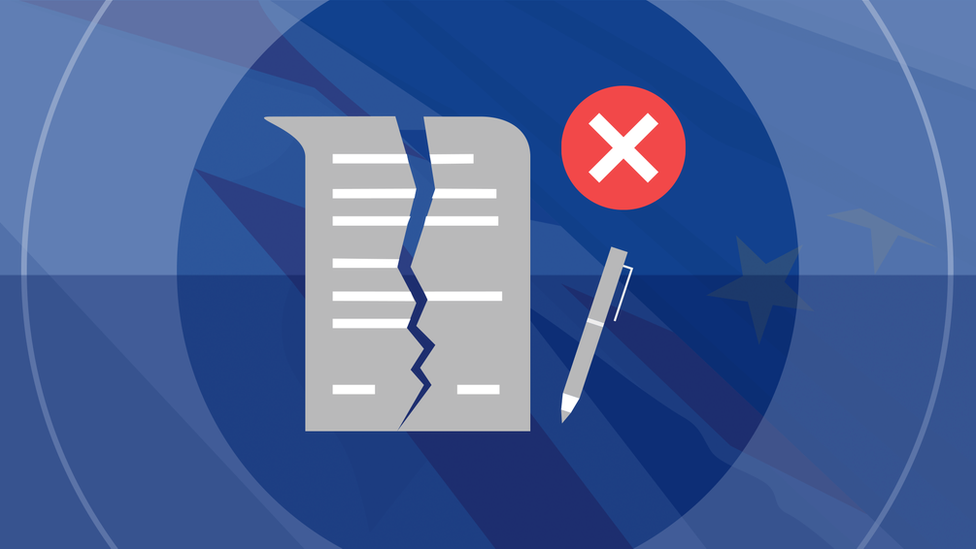No-deal Brexit risks cattle cull in NI, industry insiders warn
- Published
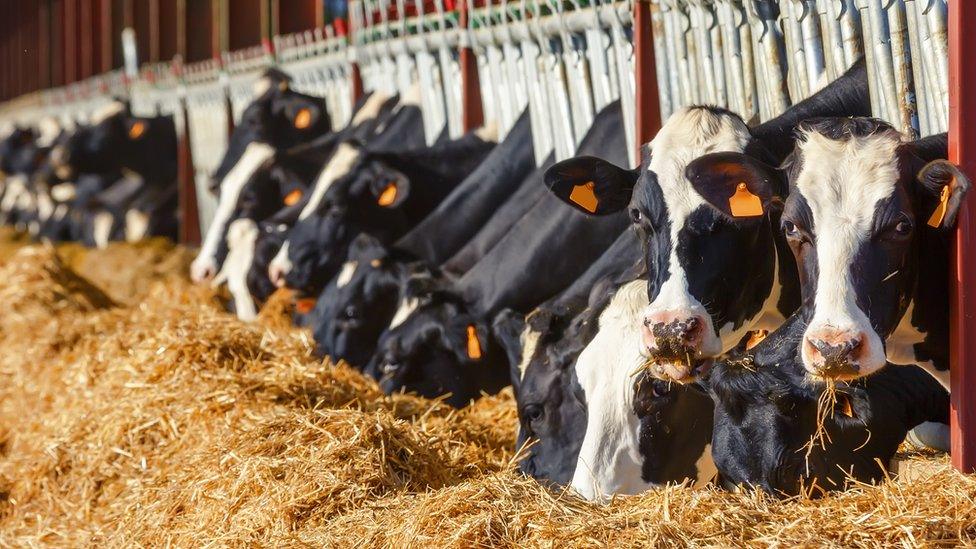
One source told Newsnight the culling of cattle could start within weeks of a no-deal Brexit
Some 45,000 dairy cows could be culled in Northern Ireland, in the event of a no-deal Brexit if new higher tariffs are applied to British milk, senior industry figures have warned.
Northern Ireland is particularly vulnerable because about a third of its dairy output is processed in the Republic of Ireland, which would continue to be part of the EU.
The UK is due to leave the EU on 31 October and one source said the culling of cattle could start within weeks of that date if that happened without the UK and EU agreeing a deal.
BBC Newsnight has been told that officials and ministers from the Department for the Environment, Farming and Rural Affairs (Defra), have been warned about the potential for a "major cull of dairy cattle, but they are not listening".
In a statement Defra said: "A widespread cull of livestock is absolutely not something that the government anticipates nor is planning for in the event of no-deal.
"We will always back Britain and Northern Ireland's great farmers and make sure that Brexit works for them.
"The government is boosting its preparations to ensure we are fully prepared to leave the EU on 31 October, whatever the circumstances."
But another industry insider told Newsnight that despite their warnings there had been a "metaphorical shrug of the shoulders from ministers".
It comes after reports on Monday that the prime minister's de facto chief of staff, Dominic Cummings had said all government departments should be "interrogated" on Brexit planning, external and raise any issues with No 10 as soon as possible.
There are approximately 310,700 dairy cattle in Northern Ireland, and the industry exports between 700 and 800 million litres of milk to the Republic of Ireland each year.
At present the average trade price of a litre of British milk is 26p. In the event of a no-deal Brexit, where 19p tariffs could be applied, that price would be pushed up to 45p in the Republic.
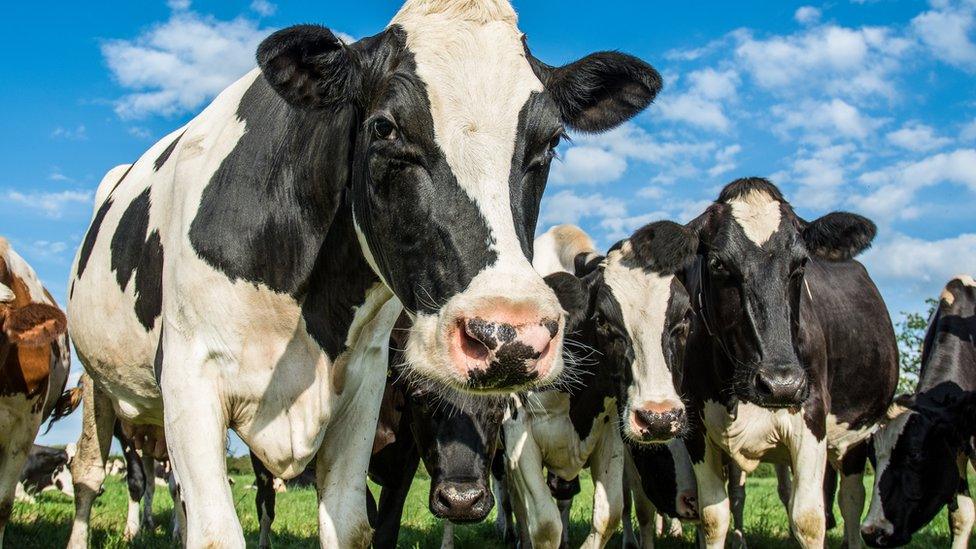
However, the concerns are not solely based on the introduction of tariffs, which would make British milk expensive.
Customs checks and paperwork relating to traceability and standards could add further complications, and crucially it may no longer be legal to mix milk from the north and south.
The fear among producers in Northern Ireland is that, if no agreement is reached and traditional trading relationships with the south become difficult, the country will be left with a glut of milk that it will not be able to process or sell.
An industry insider said: "Dairy herds have to be milked, it's not like you can leave the milk in the cows they would bloat up and ultimately die.
"If there is no market, and farmers cannot sell their milk, they could only keep going for a very short period.
"We're talking about hundreds of thousands of litres of milk going to waste, and then the farmers would have no choice but to reduce their herds."
Industry insiders say they arrived at the figure having considered Northern Irish processing plants maximising their output and some milk being sent to other parts of the UK.
Dairy farmers in Northern Ireland and the rest of the UK could face a further threat if current government plans to apply a 0% tariff on dairy imports in the event of a no-deal Brexit allow foreign milk to enter the UK market at a comparative advantage.
Michael Bell, executive director of Northern Ireland Food and Drink Association (NIFDA), said: "The impact of a no-deal Brexit on food and drink - Northern Ireland's largest industrial sector - will potentially be very severe.
"Given our reliance on EU exports, and the fact that the agri-food sector on the island of Ireland is highly integrated, leaving the European Union without a deal would leave us uniquely exposed.
"Locally, the lack of a Northern Ireland executive at a time of immense uncertainty for the industry is a major problem.
"The Northern Ireland food industry and the economy as a whole is potentially facing unprecedented difficulty, yet we remain without ministers able to take important decisions and fight our corner.
"I would strongly urge the UK government, and our local politicians, to work together to avoid a no-deal at all costs, before it is too late."
- Published11 October 2019
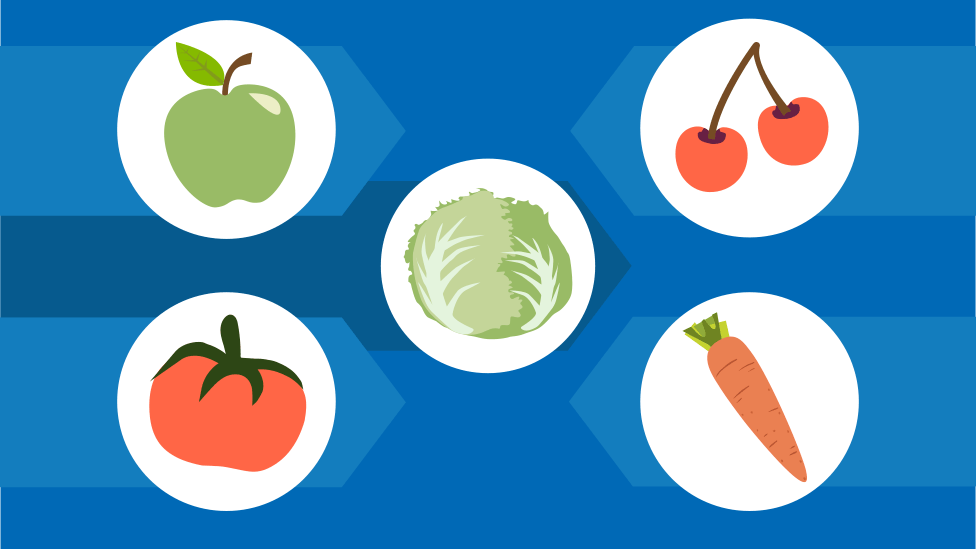
- Published7 August 2019
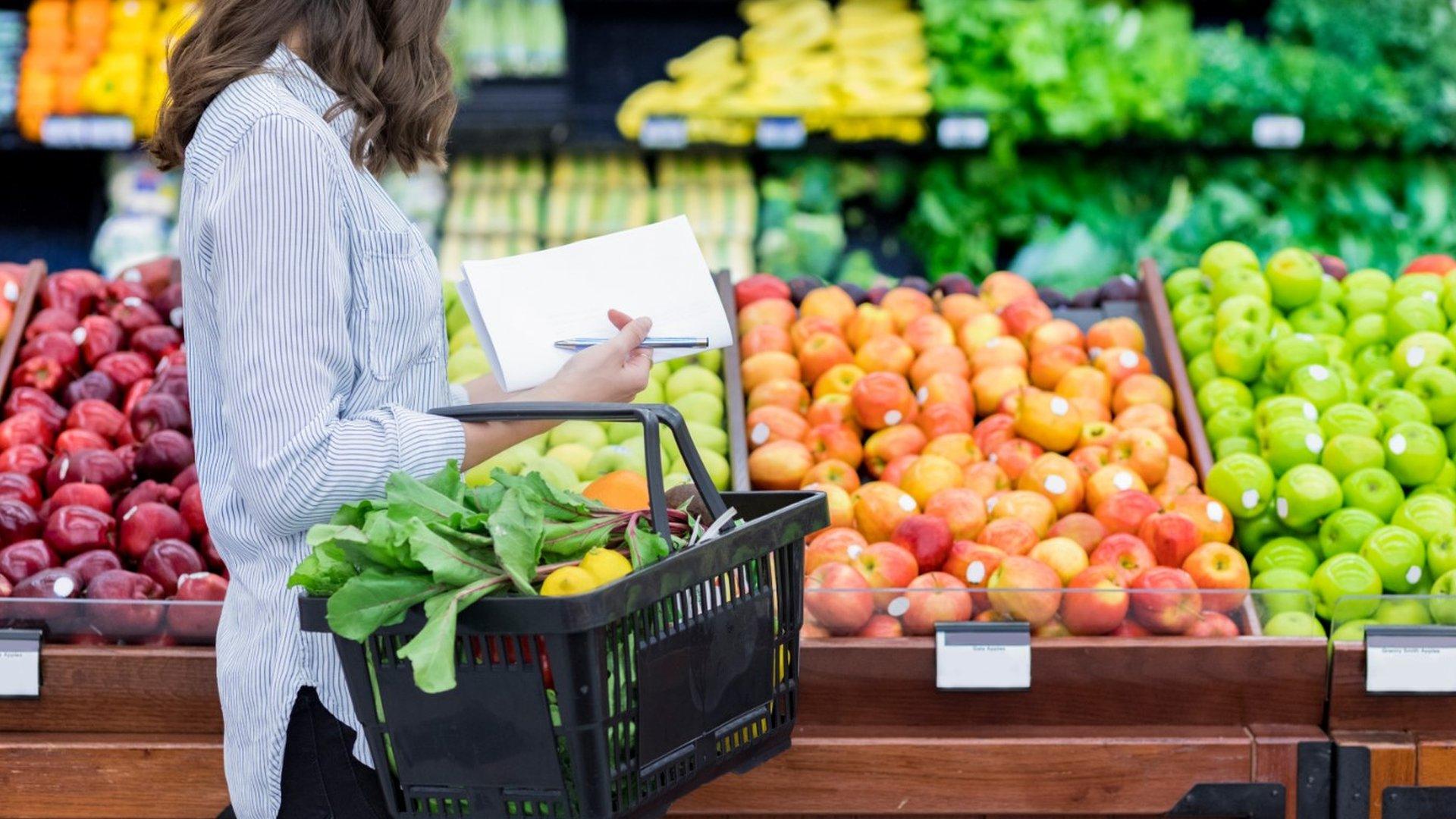
- Published13 December 2020
